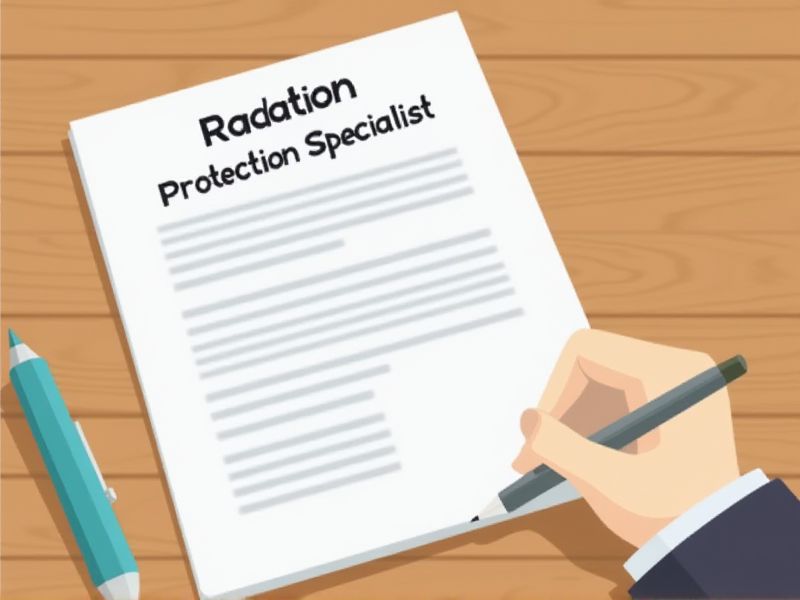
Radiation Protection Specialists perform critical roles in ensuring safety from hazardous radioactive substances. Certifications validate their expertise, ensuring they possess the necessary skills to assess and mitigate radiation risks. Regulatory requirements in the industry demand certified professionals to maintain high safety standards. Some important certifications for Radiation Protection Specialists include the Certified Health Physicist (CHP) and the NRRPT (National Registry of Radiation Protection Technologists).
Certified Health Physicist (CHP)
Certified Health Physicists bring advanced knowledge and expertise in radiation safety, crucial for effectively managing and mitigating exposure risks in various environments. Their rigorous training and certification by the American Board of Health Physics ensure they are well-versed in national standards and safety protocols. This expertise enables them to develop effective radiation protection programs, essential for safeguarding worker and public health. They stay updated with evolving radiation technologies and regulations, ensuring compliance and enhancing the credibility of radiation safety operations.
Certified Radiation Protection Technologist (CRPT)
Increased regulatory requirements mandate the expertise of a Certified Radiation Protection Technologist to ensure compliance and safety standards are met. The CRPT certification program equips professionals with specialized training and knowledge essential for assessing and mitigating radiation risks. Without a CRPT, a Radiation Protection Specialist may lack the comprehensive understanding required for effective dose management and emergency response. Employers seek CRPTs to enhance their team's credibility and capabilities in implementing radiation protection programs.
Radiation Safety Officer (RSO) Certification
The RSO Certification ensures that a Radiation Protection Specialist possesses the necessary knowledge to oversee radiation safety protocols effectively. Without this certification, the specialist might lack comprehensive understanding of regulatory requirements, leading to potential safety violations. The certification process equips the specialist with skills to implement proper safety measures, reducing the risk of harmful exposure. Organizations are more likely to trust and hire individuals with RSO Certification, recognizing their ability to maintain a safe environment.
American Board of Radiology Certification (Medical Physics)
The American Board of Radiology Certification in Medical Physics signifies a high level of expertise, reassuring healthcare facilities of the professional's competency in radiation safety standards. Certification ensures radiation protection specialists possess the necessary knowledge to minimize radiation exposure, enhancing patient and staff safety. It aligns with regulatory and accreditation requirements, providing a systematic approach to risk management in radiological practices. The credential elevates the specialist's professional credibility, fostering trust and confidence among peers and employers in their ability to manage radiation protection effectively.
Certified Industrial Hygienist (CIH)
A Certified Industrial Hygienist (CIH) holds specialized knowledge necessary for identifying and analyzing radiation hazards in occupational settings, ensuring informed risk assessments. Their expertise aids in the development and implementation of comprehensive radiation protection programs tailored to specific industry needs. Compliance with regulatory standards is safeguarded through the CIH's understanding of both federal and state-level radiation guidelines. Their skills in monitoring and controlling radiation exposure are critical in minimizing potential health risks to workers and the environment.
Nuclear Regulatory Commission (NRC) Radiation Protection Training Certificate
The Nuclear Regulatory Commission (NRC) Radiation Protection Training Certificate ensures that Radiation Protection Specialists possess the necessary knowledge to understand and manage radiation risks effectively. This certification guarantees that specialists adhere to federal safety standards, minimizing the potential for harmful exposure to workers and the public. It aids in maintaining regulatory compliance, which is pivotal for the operation of nuclear facilities. The certificate also reinforces public trust by promoting transparency and competence in nuclear industry operations.
Certified Safety Professional (CSP)
A Certified Safety Professional (CSP) possesses advanced expertise in identifying and mitigating occupational hazards, crucial for managing the complexities of radiation safety. By having a CSP certification, a Radiation Protection Specialist demonstrates validated skills in implementing safety protocols, enhancing trust among stakeholders. The certification often equips professionals with a comprehensive understanding of regulatory standards, enabling effective compliance with legal requirements in radiation environments. CSP holders are trained in risk assessment and management, critical for safeguarding both workers and the public from potential radiation exposure.
Certified Environmental Health Specialist (CEHS)
Exposure to radiation poses significant public health risks, so a Certified Environmental Health Specialist (CEHS) brings necessary expertise in monitoring and managing these hazards. Their certification ensures they are knowledgeable about current regulations and best practices for radiation safety. By performing risk assessments and implementing control measures, a CEHS helps prevent harmful exposure to radiation. Their skills in emergency response planning are crucial in cases of accidental releases or contamination events.
Hazardous Materials Technician Certification
Hazardous Materials Technician Certification equips a Radiation Protection Specialist with the ability to handle, assess, and manage hazardous substances safely, particularly radioactive materials. This certification ensures adherence to safety protocols, minimizing the risk of radiation exposure to both personnel and the public. Proper training in hazardous materials management aids in effective response during incidents involving radiological hazards. Regulatory compliance often mandates having certified personnel to maintain accreditation and legal operation standards in environments with potential exposure to radiation.
Emergency Preparedness Certification for Radiological Incidents
Emergency Preparedness Certification for Radiological Incidents ensures that Radiation Protection Specialists are equipped with validated skills to manage nuclear emergencies efficiently, which is critical to minimizing exposure risks. Specialized training contributes to consistent and effective communication strategies during incidents, allowing for informed decisions that protect public health. Certification fosters trust among stakeholder agencies by demonstrating a standardized level of competence in handling radiological hazards. Maintaining an updated certification ensures that specialists stay informed about evolving technologies and best practices, which enhances overall safety and response capabilities.
Summary
With certifications, you enhance your credibility and increase job prospects as a Radiation Protection Specialist. Certifications validate your expertise, leading to higher potential earnings and career advancement opportunities. Employers often prioritize certified professionals, resulting in reduced risk and improved safety compliance in their operations. Consequently, you can expect greater responsibility and recognition in your field.
